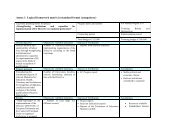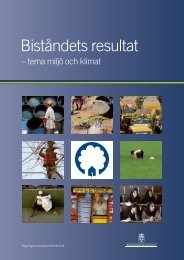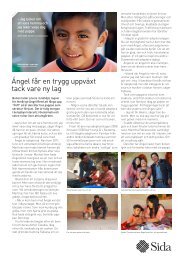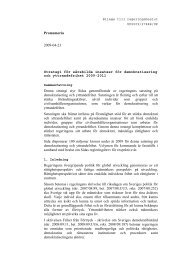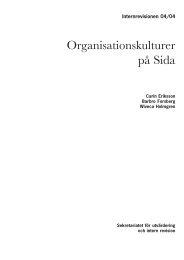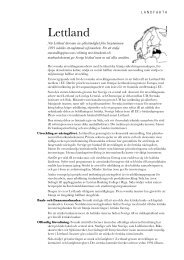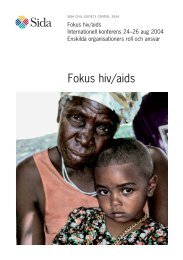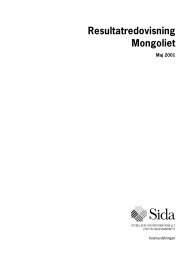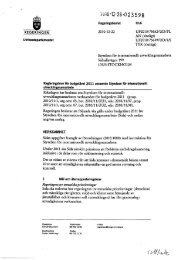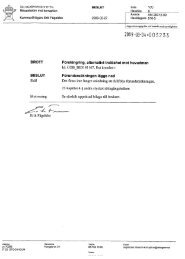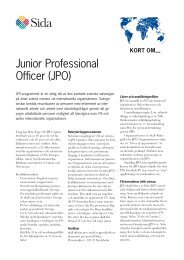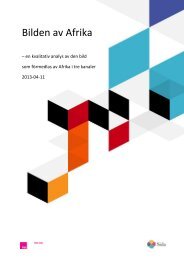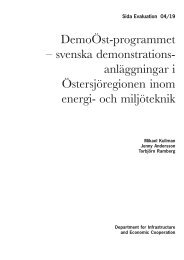Mid-Term Review of the AGIR Programme - Sida
Mid-Term Review of the AGIR Programme - Sida
Mid-Term Review of the AGIR Programme - Sida
You also want an ePaper? Increase the reach of your titles
YUMPU automatically turns print PDFs into web optimized ePapers that Google loves.
2 findings<br />
Annex 2 – <strong>Term</strong>s <strong>of</strong> Reference<br />
TOR – <strong>AGIR</strong> <strong>Mid</strong>-<strong>Term</strong> <strong>Review</strong><br />
Intervention background<br />
The Swedish support to civil society in Mozambique is structured through a programme<br />
called <strong>AGIR</strong> whereby four international NGOs (INGOs) with a common<br />
overall objective, support local partner organisations. The programme was created<br />
and started in 2010, fully operational in 2011 and has an agreement period ending in<br />
December 2014.<br />
The joint overall objective <strong>of</strong> <strong>AGIR</strong> is:<br />
“Active citizens(hip) and a strong, vibrant civil society (that) participates in and influences<br />
democratic process, contributing to more accountable governance, deepened<br />
democracy, gender equality and human rights in Mozambique”<br />
The four INGOs (called intermediaries in <strong>the</strong> programme) are IBIS, Oxfam Novib,<br />
Diakonia and <strong>the</strong> Swedish Cooperative Center (SCC) and <strong>the</strong>y implement four different<br />
“sub-programmes”, as follows:<br />
Access to Information – IBIS<br />
Financial accountability; participation, social and legal accountability with focus<br />
on underlying causes <strong>of</strong> discrimination – Oxfam Novib<br />
Political Accountability; participation, social and legal accountability with focus<br />
on <strong>the</strong> legal aspects <strong>of</strong> human rights – Diakonia<br />
Accountability in natural resources and land management – SCC<br />
Sweden has individual agreements with <strong>the</strong> four intermediaries, but <strong>the</strong> programme is<br />
seen as a whole and large parts <strong>of</strong> <strong>the</strong> reporting is done jointly. The core <strong>of</strong> each <strong>of</strong><br />
<strong>the</strong> “sub-programmes” is <strong>the</strong> establishment <strong>of</strong> partnerships with a number <strong>of</strong> local<br />
CSO partners active in <strong>the</strong> specific <strong>the</strong>matic area. Each partnership is regulated in an<br />
agreement between <strong>the</strong> INGO and <strong>the</strong> partner. The nucleus <strong>of</strong> <strong>the</strong>se partnerships are<br />
core-funding, with a strong focus on capacity development.<br />
The overall Swedish objectives are to increase <strong>the</strong> positive impact <strong>of</strong> Mozambican<br />
civil society organisations on government transparency and accountability, citizen’s<br />
participation and access to information and <strong>the</strong> respect for human rights, including<br />
gender equality. This is done by supporting <strong>the</strong> intermediaries to:<br />
a) Provide long-term core-funding and capacity development support to civil society<br />
partner organisations, based on <strong>the</strong>se organisations’ own strategic plans.<br />
b) Support and facilitate linkages, mutual learning and knowledge and experience<br />
sharing between civil society organisations.<br />
80



